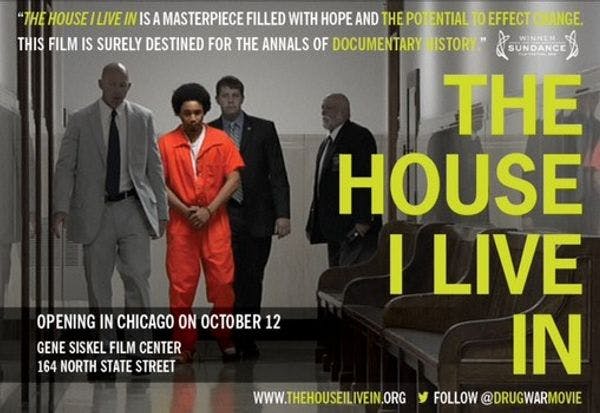A House We All Live In: Witnessing Drug Policy in America
In a first for the Open Society Foundations’ Campaign for a New Drug Policy, one of our grantees is an Oscar contender. The documentary film, The House I Live In, by acclaimed director and Soros Justice Fellow Eugene Jarecki, is a critical examination of America’s decades-long "War on Drugs." From 126 formal submissions, The House I Live In is now one of 15 films selected for the Academy Award Nominations’ short list for Best Documentary.
Winner of the 2012 Sundance Film Festival Grand Jury Prize, The House I Live In shines a light on the origins of drug prohibition and its role in making the United States the world’s foremost jailor of its own people. Beneath the “just say no” rhetoric, Jarecki exposes a policy that delivers on few of its promises and, instead, has led to loss of freedom, violence, disease, and death for countless individuals, families and communities.
I suspect that most documentary filmmakers feel strongly about the subject matter of their films, be it the people portrayed, circumstances encountered or underlying social issues. Jarecki and his staff are no different in that respect. What is unusual about the people at Charlotte Street Films is that, after making an honest film about the drug war – one that represents everyone involved with sympathy – their work is rapidly becoming a centerpiece of efforts to reform American drug policy. Advocates for public health, civil liberties, and racial equality have actively embraced the film and incorporated it in their work. With the support of the Open Society Foundations and other funders, Jarecki and his staff’s nonprofit charity, The Eisenhower Project, has responded to demand for their film with an exhausting schedule of U.S. and international screenings and speaking engagements.
This seems to have always been Jarecki's intention. He found a way to undertake a costly process – even documentary films are shockingly expensive to make – and then distribute it independently in order to use it in ways that will be entirely unprofitable, but are already advancing public understanding of the damaging impacts of current drug policy.
While the Oscar jury decides whether The House I Live In will join the final five in January, Jarecki and his team at The Eisenhower Project are pursuing their ambitious two-year project. There has never been a better time. Washington and Colorado voters have passed ballot measures establishing regulated access to marijuana for adults. A growing number of states are enacting overdose prevention laws that protect life by not threatening drug users with arrest and prosecution. Local coalitions, such as Seattle’s Law Enforcement Assisted Diversion, are testing ways to be more effective, while spending fewer taxpayer dollars, in addressing problematic drug use and drug markets – all without waiting for Congress or state legislators to find the political courage to join their efforts. And, on a global level, various heads of state in Latin America and elsewhere are questioning the wisdom of addressing health concerns through police and military action.
Film is a powerful medium of communication, and Jarecki and his staff use it to great effect. Sometimes people have to see and hear for themselves. Ultimately, that might be the value of The House I Live In: to show people this thing we call "The War on Drugs." After seeing the film, I’m fairly confident that most viewers will want this war to end.
Keep up-to-date with drug policy developments by subscribing to the IDPC Monthly Alert.
Regions
Related Profiles
- Open Society Foundations (OSF)
